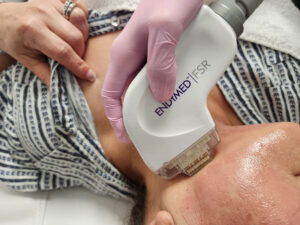The immune system is the most important part of our physical health. It is responsible for protecting us from germs and other organisms that could cause illness or even death. The immune system includes various types of cells, including phagocytes, neutrophils, dendritic cells, natural killer cells and lymphocytes. These different types of white blood cells work together to keep us healthy by identifying and destroying harmful organisms before they can cause disease.
The immune system is the foundation of physical health. When you are healthy, it is because your immune system is doing its job.
The immune system is the foundation of physical health. When you are healthy, it is because your immune system is doing its job.
When you are unhealthy, it’s because your immune system has been compromised (or “compromised”). When the immune system has been compromised, it can be an uphill battle to restore your health again.
When the immune system has been compromised, you will not be able to recover until the cause of that compromise is removed or treated appropriately with proper supplements and/or medications that support a healthy functioning immune system
When your immune system is strong, you are better able to resist disease and recover faster when you do get sick.
Your immune system is the foundation of physical health. When it is strong, you are better able to resist disease and recover faster when you do get sick. Your immunity can be compromised by stress, poor diet or insufficient rest.
When your immune system has been compromised by stress, poor diet, or insufficient rest, it can lead to a host of illnesses—including some cancers.
When your immune system has been compromised by stress, poor diet, or insufficient rest it can lead to a host of illnesses—including some cancers. The immune system is the foundation of physical health. It does its job when you are healthy and well rested; however, when you are stressed out, eating poorly and not getting enough sleep it becomes compromised and unable to function effectively.
The importance of maintaining our Immune System
It starts with good nutrition: If you want to maintain an effective immune system then make sure your diet is full of fresh fruits, vegetables and lean proteins such as chicken or fish (occasionally red meat). You should also supplement with essential vitamins and minerals including vitamin C.
Maintaining a robust immune system, therefore, is the single most important thing you can do for your health.
- Maintaining a robust immune system, therefore, is the single most important thing you can do for your health.
- The immune system maintains itself to fight off foreign invaders like viruses and bacteria. When it detects these invading agents it sends white blood cells (leukocytes) to fight them off and destroy them if possible. This process is called an immune response.
- Immune cells communicate with each other through chemical signals and cell-to-cell contact; they recognize molecules on the surface of other cells or infectious organisms and respond by releasing chemicals that activate other parts of the immune system or generate inflammation as part of their response to infection or injury.
Immune cells are found throughout the body.
Immune cells are found throughout your body, including in the blood and lymphatic system as well as organs such as the skin and intestines. The immune system also has a role in three other major systems: respiratory, digestive and reproductive.
The immune system fights off infections by killing bacteria or viruses that enter through mucous membranes or breaks in the skin’s outer layer (epidermal barrier). Immune cells called “T cells” recognize antigens—substances that trigger an immune response—on foreign invaders like bacteria or viruses. If you’re exposed to something that your body doesn’t recognize as part of itself (like a virus), T cells will release chemicals known as cytokines to help activate other types of white blood cells called B cells, which produce antibodies to fight off infections.
A strong and healthy immune system starts in the gut.
The importance of maintaining our Immune System
A strong and healthy immune system starts in the gut. It is there that your body first senses the presence of foreign invaders, such as viruses and bacteria. The gut is also where your immune system ends and processes nutrients absorbed from food. Your body can only absorb nutrients if it has a strong gut lining that can keep out unwanted substances like toxins or allergens that would otherwise disrupt this process. If you have damaged or compromised intestines, then your ability to absorb nutrients is jeopardized as well as your ability to fight off infection.
A diet rich in antioxidants also helps increase the production of important immune cells like T-cells and B-cells that identify and destroy germs before they can cause illness.
Antioxidants are found in fruits and vegetables, as well as whole grains and nuts. These foods help to increase the production of important immune cells like T-cells and B-cells that identify and destroy germs before they can cause illness. Antioxidants also help fight free radicals, which are unstable molecules produced by our body’s natural processes to rid itself of toxins. Free radicals can cause damage to cells if left unchecked, so antioxidants help neutralize them by donating an electron so that they become stable again. For this reason, vitamins C and E have been shown to improve immune system function (and eliminate the common cold!). Beta carotene is another antioxidant found in spinach, sweet potatoes and carrots; it converts into vitamin A inside your body when needed most—when your immune system needs protection against invading viruses or bacteria!
While you may be getting enough vitamin C in your diet, vitamin C has been shown to have a greater effect on cold symptoms when it’s given intravenously.
We all know what vitamin C does for the body. It helps boost our immune system, keeps our skin from aging too quickly and even gives us energy. But how do we ensure we’re getting enough of this vital nutrient?
Vitamin C is a water-soluble vitamin that cannot be stored in the body; therefore, we need regular intake of it through food or supplements. Vitamin C can be found in many fruits and vegetables such as oranges, strawberries and broccoli. However, not all sources of vitamin C contain equal amounts of this essential nutrient so you should aim to consume a variety of fruits and vegetables every day!
Vitamin C is needed for growth and repair of body tissues including skin cells; however it also plays an important role in helping protect cells from damage caused by free radicals (unstable molecules that damage cells). Free radicals can cause cancerous growths to form so keep your levels high by eating plenty of fruit!
IV therapy allows vitamins and minerals to bypass the digestive tract so they go straight into the bloodstream where they can start working immediately on weak or compromised areas within the body—including the immune cells in the gut that can fight off infection before it even begins!
IV therapy allows vitamins and minerals to bypass the digestive tract so they go straight into the bloodstream where they can start working immediately on weak or compromised areas within the body—including the immune cells in the gut that can fight off infection before it even begins!
IV therapy can be used for many different conditions, including but not limited to: chronic fatigue syndrome, fibromyalgia, osteoporosis, cancer prevention and treatment (chemotherapy side effects), AIDS wasting syndrome (HIV/AIDS), bone marrow transplants/stem cell research/transplantation surgery recovery time (stem cells are isolated from your own bone marrow through a simple outpatient procedure).
Conclusion
The immune system is the foundation of physical health. When you are healthy, it is because your immune system is doing its job. When your immune system is strong, you are better able to resist disease and recover faster when you do get sick. Maintaining a robust immune system, therefore, is the single most important thing you can do for your health. Immune cells are found throughout the body but a strong and healthy immune system starts in the gut where they fight off infection before it even begins! While you may be getting enough vitamin C in your diet, vitamin C has been shown to have a greater effect on cold symptoms when it’s given intravenously through an IV infusion therapy session at LifeSpa Wellness Center.”













